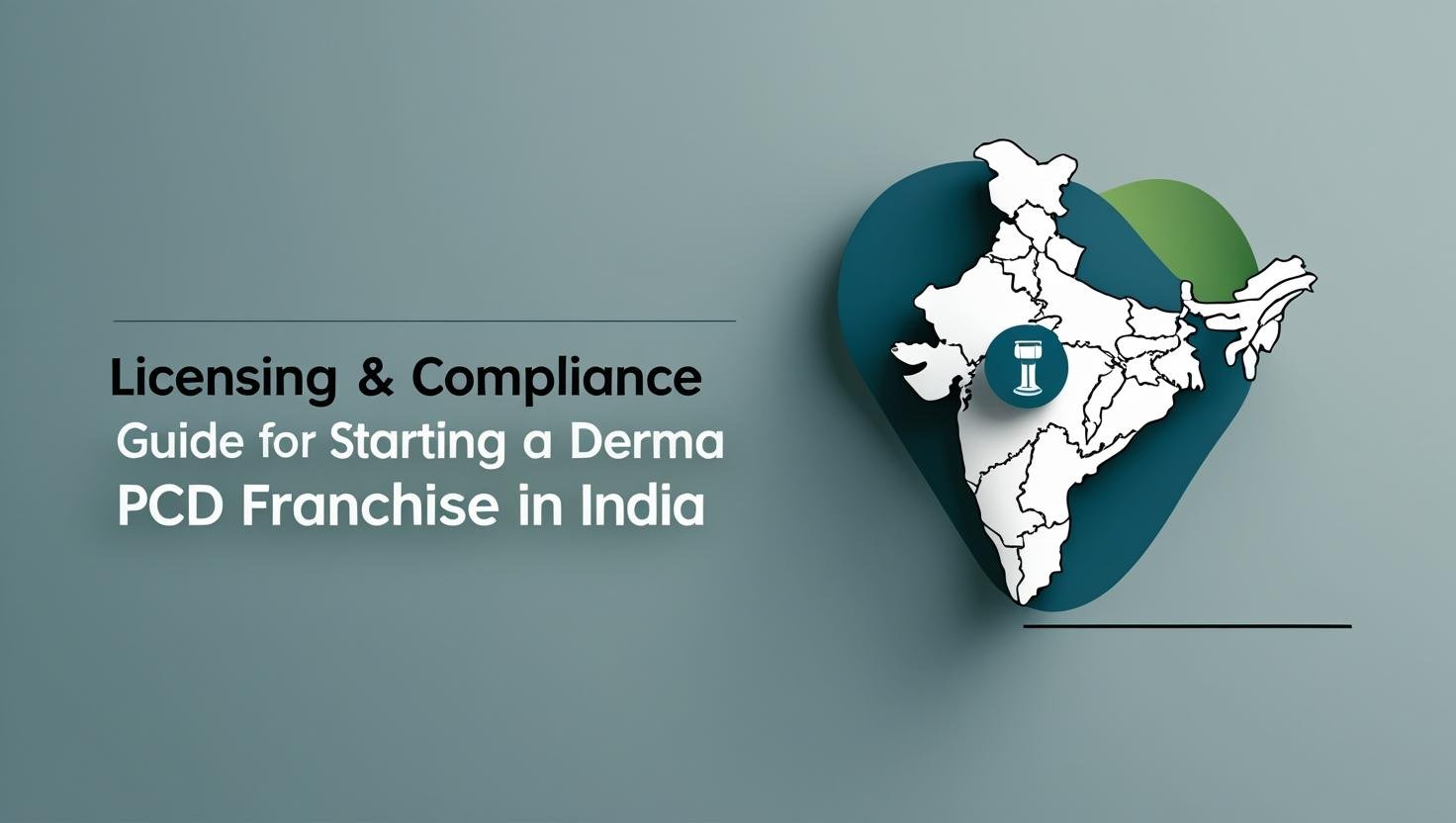Licensing & Compliance Guide for Starting a Derma PCD Franchise in India
The dermatology segment in India is witnessing rapid growth, with rising demand for skincare and haircare solutions across urban and rural markets. This surge has opened up excellent business opportunities for entrepreneurs through the derma PCD franchise model. However, before starting your journey, it is crucial to understand the licensing and compliance requirements to operate legally and build a credible brand.In this guide, we will walk you through the essential licenses, legal formalities, and compliance measures for starting a derma PCD franchise in India.
1. Understanding the Importance of Licensing in the Pharma Sector
Licenses are not just legal formalities — they are proof of your business’s authenticity and adherence to industry standards. Without proper licenses, you risk legal penalties, loss of reputation, and business closure.Why it matters:
- Builds trust with healthcare professionals and customers.
- Ensures product safety and quality.
- Helps in smooth distribution and marketing.
2. Mandatory Licenses Required for a Derma PCD Franchise
Drug License
Issued by the State Drug Control Department, this license is essential for storing and selling pharmaceutical and derma products. It can be:- Retail Drug License (RDL): For businesses selling products directly to consumers.
- Wholesale Drug License (WDL): For distributors and franchise partners supplying to retailers.
GST Registration
Required for tax compliance, GST registration enables you to collect and remit Goods and Services Tax on your sales.Company Registration
Depending on your business model, you may register as:- Proprietorship
- Partnership firm
- Private Limited Company
- LLP (Limited Liability Partnership)
Trademark Registration
Secures your brand identity and prevents misuse of your company name or logo.3. Compliance with Pharma Manufacturing Standards
Even if you are a franchise partner and not manufacturing yourself, ensure your parent company follows:- WHO-GMP (World Health Organization – Good Manufacturing Practices)
- ISO certification
- DCGI-approved formulations
4. Agreements and Legal Documentation
To safeguard your rights and ensure smooth business operations, you must have:- Franchise Agreement: Clearly stating monopoly rights, product pricing, and payment terms.
- Non-Disclosure Agreements (NDAs): Protecting confidential information.
- Terms of Supply: Covering order timelines, delivery schedules, and replacement policies.
5. Importance of Monopoly Rights
Monopoly rights ensure that no other franchise partner of the same company operates in your territory. This:- Increases your profit potential.
- Reduces intra-brand competition.
- Strengthens customer loyalty.
6. Regulatory Compliance for Marketing
Pharmaceutical marketing in India is regulated under:- Drugs and Cosmetics Act, 1940
- Pharmaceutical Marketing Practices Guidelines (PMPG)
7. Renewal of Licenses and Ongoing Compliance
Most licenses require periodic renewal. Failing to renew on time can result in fines or suspension.Best practices:
- Keep a record of renewal dates.
- Maintain up-to-date documentation.
- Conduct regular compliance audits.

